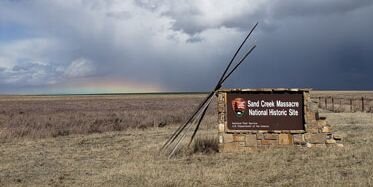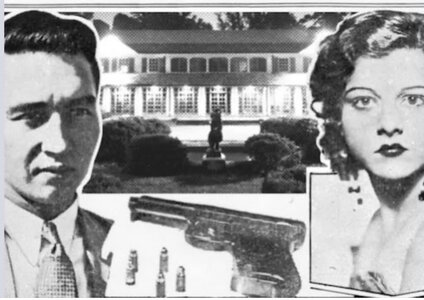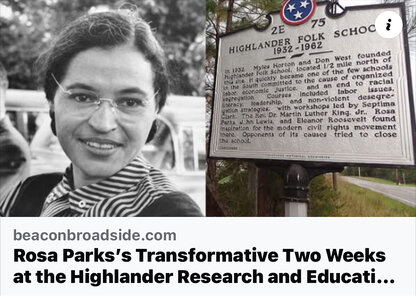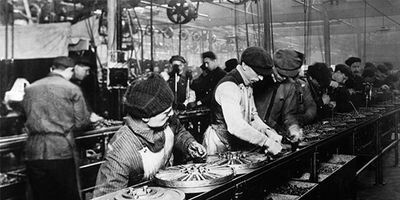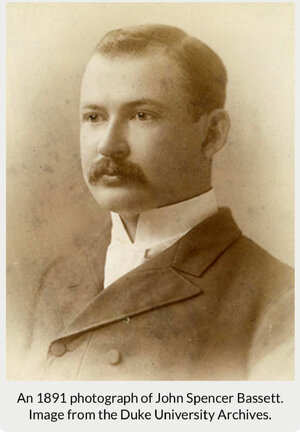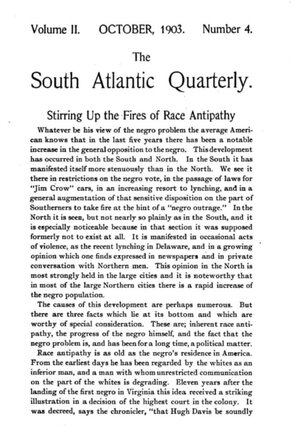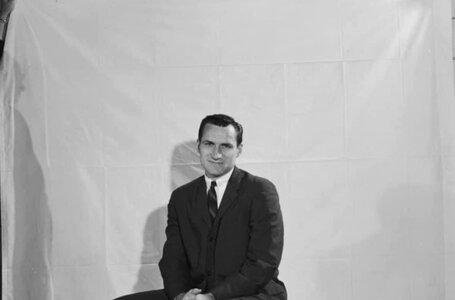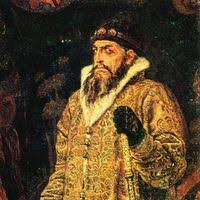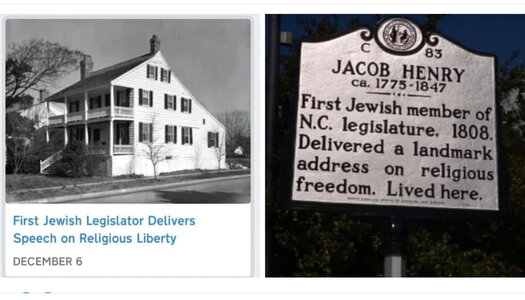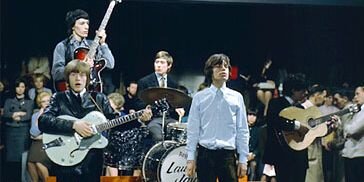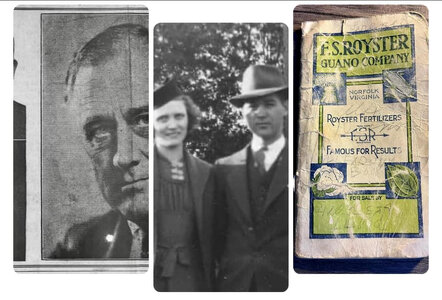
Deddy was born in 1916 on a hard-scrabble tobacco farm near Sandy Branch Baptist Church in Deep Chatham County, North Carolina. Grandpa Willis and Grandma Ila Dunn never had much but some creek bottom land, family, and neighbors. Grandpa was a mechanic and his middle son, ‘Pete,’ became one too. ‘Doc,’ the baby, went off to the city of Greensboro where he worked for Sears-Roebuck and raised up his own family. Ethel, the lone girl, met a man from Tyson’s Creek and with the help of their large family they farmed down that way. My Deddy, who like his brothers had a nickname - ‘Bic’ - but was called ‘Elec’ (#DeepChatham pronunciation of Alex) by one and all, rambled a bit before sinking his roots just 3 miles from Sandy Branch in #Bonlee.
I don’t think of Deddy as rambling and I doubt anyone else does and maybe it’s a stretch but I do know that around 1934, when he was 18 and having finished up the optional 12th grade at Bonlee School, he went off to Florida. Most kids in those days, certainly farm ones, stopped at the 11th grade if not before but when ‘Pete’ said he’d rather learn mechanicking from Grandpa Willis than books, that freed up Deddy to go to another year of school. I’ve recently ‘discovered’ a book of “Love Verses” that he wrote, they are clearly his composition, in an “F.S. Royster Guano Company” labeled pocket notebook. The calendar in the book is for 1930 so these are the thoughts of a teen-age boy mooning over his farm girl classmates and their charms.
“The dew is on the honeysuckle, the tide is on the sea. I am thinking of you, do you still think of me?”
“When you are away and your face I can’t see, just stop before the looking glass and kiss yourself for me.”
Most are of that tone - but this is probably my favorite:
“A kiss is sweet, but oh how bitter when the kiss comes from a tobacco spitter.”
The simple life of Sandy Branch was eventually intruded upon by the harsh reality of The Great Depression. It was the most classic of historic hard times and fresh out of Bonlee School 18-year-old ‘Elec’ heard that a mill in Greensboro was hiring so he set out on foot (today it is a 14 hour walk according to google maps). I suspect that he managed to hail a ride or two along the way but when he arrived he found “a line a mile long” of other men applying. Returning home he made a bigger foray and hitchhiked to Florida where the family of his mother, Ila Womble, lived. There he found a job in an orange packing plant.
By 20 he had returned to Chatham and was working as a timber cruiser for Dunlap Lumber Company in #Bonlee. When I found this out I understood much better his love of trees and long walks in the countryside. I went with him daily as a boy to tramp over the very land on which he was born and raised - this was always referred to as “checking on the cows” but I have come to realize that those rambles were a great deal more. Often very quiet treks, at other times quite animated verbally, those are cherished times of companionship so subtle in the moment I was unaware of the education I was receiving. I still love trees.
Timber cruising wasn’t enough for Deddy so he went to work for Mr. James Waddell in his hardware store there in Bonlee. In 1940 he and my mother, Nancy Womble married and not long afterward he and Archie Andrews bought the store and he ran it until 1983 when he let it go.
Deddy was a New Dealer. He thought a lot of Franklin Roosevelt. He became Postmaster of Bonlee during FDR’s administration. I think he thought even more of Eleonor Roosevelt though and his own ideas seem, in my recollection, to have meshed with her’s even more than with those of the President’s. Deddy never saw either one of them speak, though he heard many of the Fireside Chats that FDR gave between 1933 and his passing in 1944. I wonder if 22 year-old ‘Elec’ might have thought about making the journey over the Chapel Hill in early December of 1938 when the President spoke on the UNC campus? In the mid-term elections the month before the Democratic Party (and thus The New Deal) had taken a bad beating in the midterms, losing 72 seats in the House and 8 in the Senate. Despite those setbacks Democrats still retained control of Congress though many of those Dems were in The South and conservative, thus unreliable allies for the President on New Deal policies.
I suspect that things looked bleak to a Democrat like my Deddy as 1938 came to a close - the battle to revive and reform capitalism was still afoot and the threat of fascism was growing in Europe. Deddy had met, and was courting my mother by this time though, so I suspect he was happy in the main - though from what I understand from tales told by he and Momma, they had a break-up or two that troubled him a great deal before they tied the knot. I do know that despite the relative rural isolation of Chatham County that world events weighed on him - he passed that on to me.
It turns out that on December 5, of 1938, 86 years ago, and only 35 miles from #Bonlee, FDR was slated to speak in Kenan Stadium on the UNC campus. On that occasion, the first visit of a president to Carolina, Dr. Frank Porter Graham, one of the Greatest Tar Heels of all and at the time perhaps The South’s foremost liberal and UNC’s President, introduced Mr. Roosevelt and cited him for his support for “oppressed minorities and dispossessed majorities” while working for a United States that “stands for freedom of open and wide discussions of all issues and a fair hearing for all sides, for the ways of peace and democracy rather than war and dictatorship; for a new hope to you and a more equal educational opportunity to all children in all states.”
The President received an honorary degree from UNC that afternoon, thanking the university as a “representative of liberal teaching and liberal thought.” FDR also felt the need to respond to press accusations that he was “an ogre, a consorter with Communists, a destroyer of the rich,” who “breakfasted every morning on a dish of ‘grilled millionaire.’” Slyly, he assured everyone there that he was more fond of scrambled eggs.
I don’t know how that message might have set with Deddy but I suspect that when Roosevelt said, during the 1936 campaign, that the nation’s 1% were “economic royalists” and added that, “They hate me and I welcome their hatred,” that given the state of things among the working folk of Piedmont North Carolina, that my Deddy approved of the message. He wouldn’t have been alone, that year North Carolina voted 73.4% to 26.6% for Roosevelt over his conservative Republican challenger Alf Landon.
Just the same I reckon Deddy stayed down in #DeepChatham on that rainy Monday afternoon on the 5th of December, 1938. FDR eventually spoke to 6,000 packed into Woollen Gymnasium at UNC after weather forced relocation from Kenan Stadium. Overflow listened in Memorial Hall to piped in audio. The speech was carried nationwide via radio and even broadcast to Europe by shortwave with translation in Italian, German, French, and Russian. The BBC covered it for the international English-speaking world.
Deddy would have worked until at least 6:00 at Mr. Waddell’s Hardware Store anyway. Perhaps there were listeners gathered around a radio there. #BonleeHardware could be like that. It was 10 months before Hitler invaded Poland and three years and two days before, in the aftermath of Pearl Harbor, the US entered World War II. Such tumult still ahead - perhaps in December of 1938 his attention remained resolutely turned to winning over the love of his life and writing romantic verses to Miss Nancy Womble of Siler City. I, for one, am glad for his persistence in matters of the heart. I owe my existence to them after all. Sure wish THAT notebook had survived. [ Attribution and more here:
FDR at UNC in 1938: I eat no “grilled millionaire.” – NC Miscellany ]
